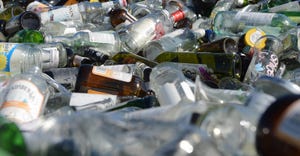Play Ball!
As I Write This Column, the 2008 Major League Baseball (MLB) season is just getting underway. What's that got to do with the solid waste industry?
Well, in the days leading up to the team's home opener, the St. Louis Cardinals made news by announcing that the franchise will now recycle the aluminum, plastic and paper collected after each home game. (Full disclosure: I'm a Cardinals fan.)
Previously, the team simply shipped the materials to a local landfill. In all, approximately 2.5 tons of trash were generated during each of the team's 81 home games in 2007, according to a report in The Riverfront Times, a St. Louis weekly newspaper.
“We'd like to say that the reduction in trash will reduce our landfill expenses,” Joe Abernathy, the Cardinals' vice president of stadium operations, told The Riverfront Times. “But even if it costs us a little money, it's just the right thing to do.”
For the past several years, the Oakland A's also have recycled glass and plastic, and have composted food, napkins, and glass and tree clippings. The team's home stadium also serves beer in compostable cups instead of plastic ones. (For more, see “I'll Drink to That,” Waste Age, July 2005, p. 6).
According to media reports, the Cardinals and A's are among the few MLB teams to have such recycling programs, but that may be about to change. Earlier this year, MLB announced that it had joined with the New York-based Natural Resources Defense Council (NRDC) to create The Team Greening Program to help teams implement more environmentally friendly practices. Under the program, NRDC will provide each team with software that will contain “specific local advice concerning such topics as energy use, purchasing, concession operations, water use, recycling and transportation,” according to a press release.
Hopefully, the Cardinals' announcement and the Team Greening Program is an indication that more MLB teams and other sports franchises are ready to “play ball” when it comes to recycling. Going to sporting events is a great way for fans to forget about the worries of the world — but that doesn't mean that the home team should be able to as well.
It's that time of year again — time to begin collecting applications for the Waste Age 100, our annual ranking of the 100 largest private and publicly held waste management companies. For us to compile the most complete and accurate list possible, we need your help. Please visit www.wasteage.com or www.wasteindustrysite.com to download an application. Entry forms also are available in editions of the Waste Age Wire weekly e-mail newsletter.
The author is the editor of Waste Age
About the Author
You May Also Like


.png?width=300&auto=webp&quality=80&disable=upscale)

